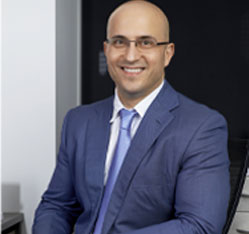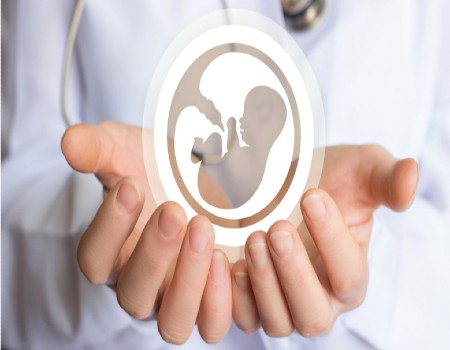31,000 babies are born each year in the greater Brisbane area
Having a baby is something that many of us look forward to in our lives – as individuals or as a couple. For some, it is a relatively straightforward journey but for others, it is a more difficult path and can be a very emotionally charged experience. If you fall into this second group, know that you’re not alone. 1 in 6 Australian couples have difficulty conceiving and infertility is increasingly common as more and more people opt to have children later in life.
What is fertility?
Fertility refers to your body’s natural ability to produce offspring – for both men and women and it varied from person to person. Age is the single largest contributing factor to infertility because quality of eggs and sperm decreases with age but fertility is also impacted by many other factors such as lifestyle, health, weight and the female fertility window. Remember, your fertility is unique to you.
So then what is infertility?
Depending on the context, infertility can have a rather broad meaning as some people may use the term quite loosely. In the medical field, it is generally accepted as the inability to conceive within 12 months of trying for a baby through regular, unprotected sex.
 However, for females over the age of 35, infertility is defined as being unable to get pregnant through natural methods within 6 months of actively trying to conceive.
However, for females over the age of 35, infertility is defined as being unable to get pregnant through natural methods within 6 months of actively trying to conceive.
Despite the fact that there is a different definition of infertility for women over 35, infertility is equally likely to stem from the male or female reproductive partner:
- Around one third of cases are due to fertility issues in the female
- Around one third of cases are due to fertility issues in the male
- The remaining third are due to a combination of both, or an unknown cause.
Both men and women may also experience infertility even after a previous natural conception, which is known as secondary infertility.
Causes of infertility
For females, most cases of infertility are due to ovulation problems that prevent a mature egg from being released and available for fertilisation. This could be due to the regulation of reproductive hormones or problems with the ovary itself. For example, a common ovulation disorder is polycystic ovary syndrome (PCOS) which causes women to have a hormone imbalance.
Some other causes of female infertility include:
- Endometriosis
- Damaged or blocked fallopian tubes (tubal infertility)
- Abnormalities in the uterus
For men, most causes of infertility relate to the quantity or function of sperm. For example, the swelling of the veins that drain the testicles which is known as a varicocele reduces the quality of the sperm produced by the male which can impact whether or not your sperm is able to reach and fertilize the female egg.
Some other causes of male infertility include:
- Blockages or obstructions that prevent sperm from being ejaculated
- Functional problems during sex
- Low levels of reproductive hormones
- Sperm antibodies
- Genetic mutations
When should I seek expert advice on my fertility?
You can seek professional advice at any stage to understand your fertility and how it may impact your future plans for a family. In particular, it is strongly recommended you see a specialist if:
- you already meet the criteria for infertility
- you have a history of sterilisation
- you have previously had a sexually transmitted disease
- you are a female a history of irregular or abnormal menstrual cycles
- you are a female who has experienced multiple miscarriages
- you are a male who has been diagnosed with varicocele or other abnormal results from a genital exam
- you are a male who has previously had urogenital surgery
I’ve already been trying for 12 months – what now?
Firstly, it is important to seek out professional medical advice from a specialist such as a gynaecologist or fertility specialist. They will be able to help you understand the factors that may contribute to your difficulties in conceiving.
During my first consultation with my patients, I will generally discuss their medical history and conduct a general physical exam. From there, I might recommend other testing that may help identify any underlying causes that are potentially contributing to one or both partners’ infertility.
For women, this may involve blood tests to test your ovulation and other hormones, imaging such as a pelvic ultrasound scan to look at your uterus and fallopian tubes, or in other cases minimally invasive surgery may be required (hysteroscopy or laparoscopy).
For men, this may involve semen analysis, blood tests to look at your hormones or genes, imaging such as brain MRI, ultrasound of your genitals, or a testicular biopsy. I can perform testicular aspirations and biopsies when required.
What are my options if I have been diagnosed with infertility?
If you have been diagnosed with infertility, there may still be other options for you to have child. Depending on your unique situation, I may be able to suggest one or more of the following options:
- Medication
- Surgery
- Ovulation induction
- Freezing your eggs, sperm or embryo
- The use of donor eggs, sperm, embryos
- Intrauterine Insemination
- In Vitro fertilisation (IVF)
- Intracytoplasmic sperm injectionwith IVF
The important thing to remember is that fertility is as unique as every individual. So if you are having difficulties conceiving naturally, you may still be able to have a have a biological child with help and advice from a specialist.
 Dr Joseph Jabbour is a private fertility specialist and OBGYN who can help you understand your unique situation. He is passionate about providing high quality care and a personalised experience. He is also one of Monash IVF’s Brisbane fertility specialists, which means he has access to extensive resources to help you realise your dream of starting a family.
Dr Joseph Jabbour is a private fertility specialist and OBGYN who can help you understand your unique situation. He is passionate about providing high quality care and a personalised experience. He is also one of Monash IVF’s Brisbane fertility specialists, which means he has access to extensive resources to help you realise your dream of starting a family.



